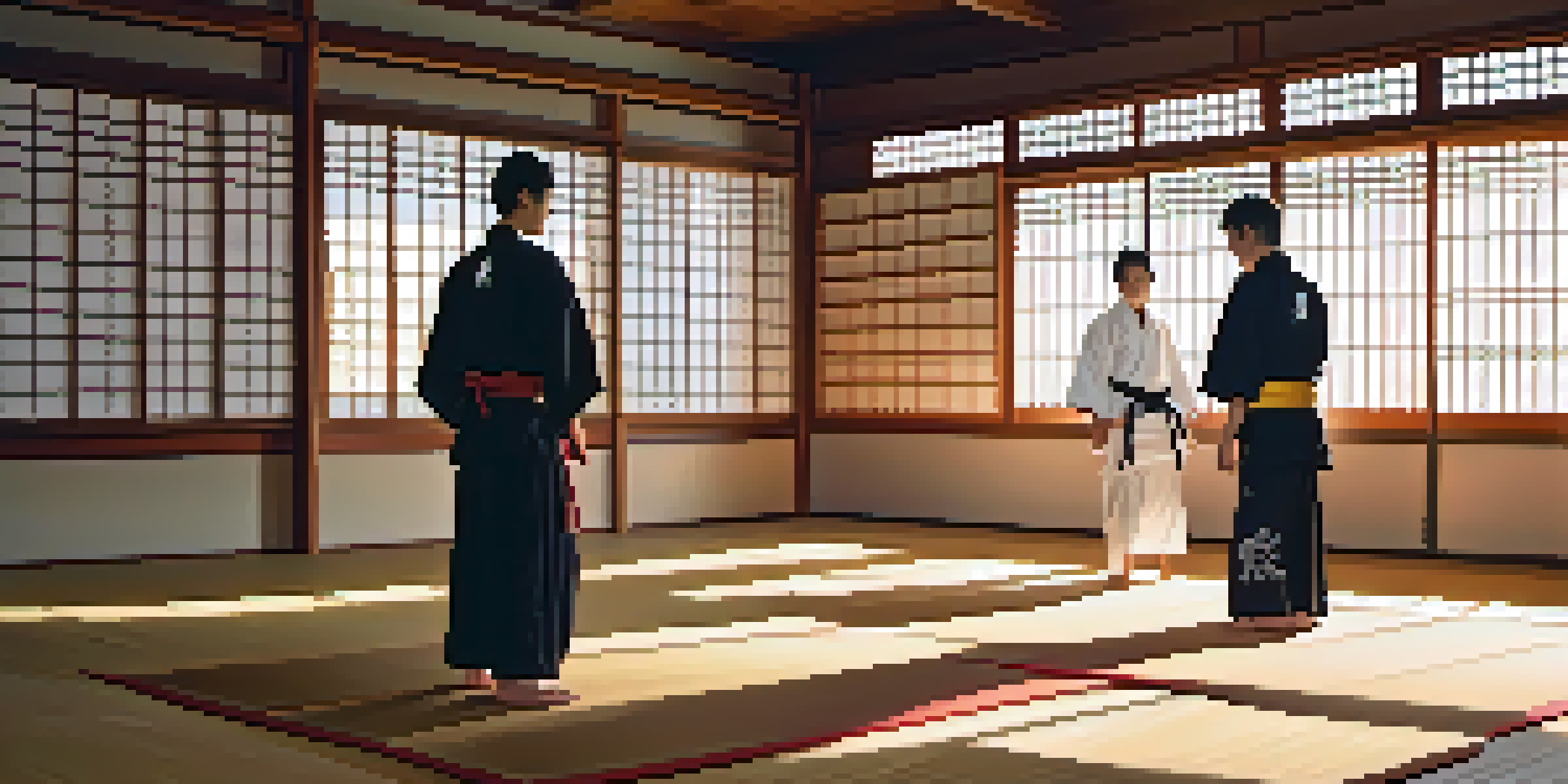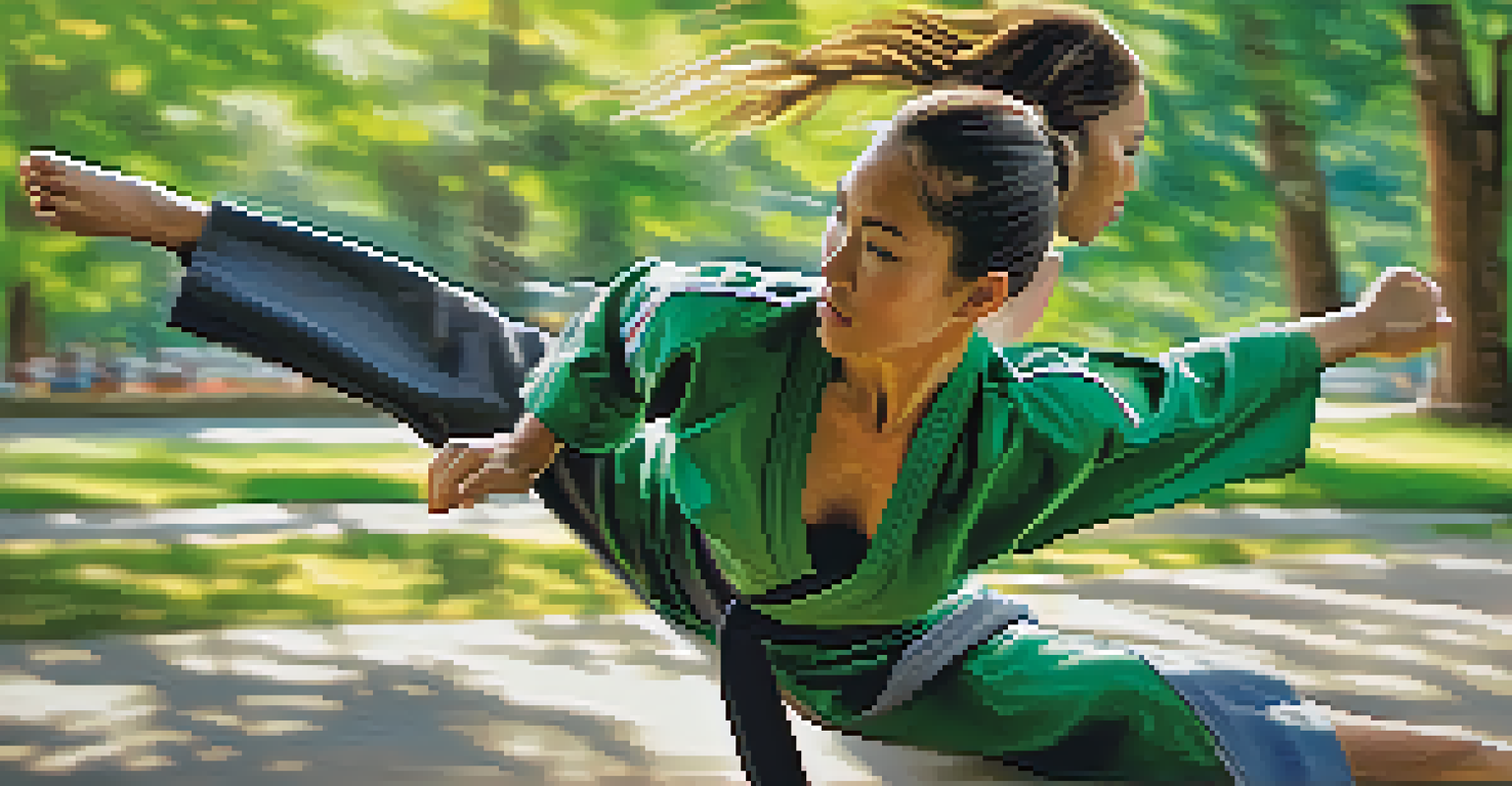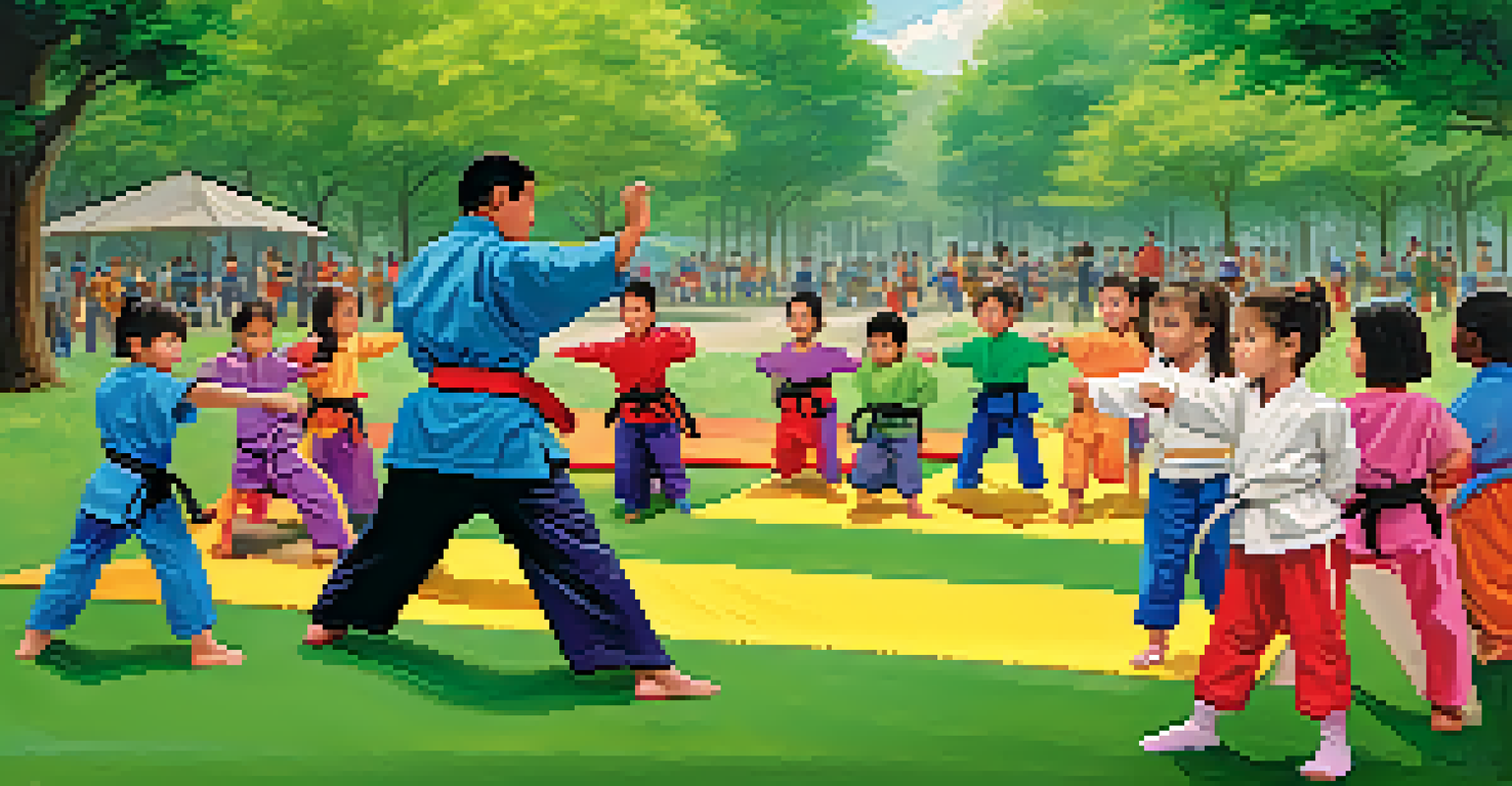The Role of Martial Arts in Promoting Equality and Justice

Understanding Martial Arts as a Tool for Empowerment
Martial arts go beyond physical combat; they serve as a powerful tool for personal empowerment. By teaching discipline, respect, and self-defense, martial arts instill a sense of confidence in practitioners. This empowerment is especially significant for marginalized groups who may feel vulnerable in society.
The ultimate aim of martial arts is not having to use them.
For many individuals, the dojo becomes a safe space where they can learn to assert themselves. The skills developed in martial arts can translate into real-world situations, helping practitioners to stand up against bullying or discrimination. This foundation of confidence and strength can lead to broader societal changes.
Ultimately, martial arts teach that everyone, regardless of background, has the right to defend themselves and seek justice. The emphasis on respect and equality in martial arts training fosters a culture of inclusivity and support, making it an ideal vehicle for promoting justice.
Building Community Through Martial Arts Training
Martial arts schools often function as community hubs, where individuals from various backgrounds come together. This melting pot of cultures and experiences can break down barriers, promoting understanding and unity among students. In class, everyone learns the same techniques, regardless of their differences.

As students train together, they form bonds that transcend societal divisions. These connections can lead to friendships that challenge stereotypes and foster acceptance. The shared experience of training, sparring, and achieving goals cultivates a sense of belonging and community.
Martial Arts Empower Personal Growth
Martial arts instill confidence, discipline, and self-defense skills, particularly benefiting marginalized groups.
When people feel connected, they are more likely to stand up for one another in times of injustice. The camaraderie built in martial arts classes can inspire collective action against discrimination, making the dojo not just a place for physical training, but a launchpad for social change.
Martial Arts as a Reflection of Societal Values
The principles taught in martial arts often mirror the values we strive for in society, such as respect, honor, and justice. Many martial arts traditions emphasize the importance of using one’s skills for protection rather than aggression. This philosophy encourages practitioners to consider the ethical implications of their actions.
Martial arts is not about fighting; it's about building a better person.
By instilling a strong moral compass in students, martial arts can promote a sense of responsibility towards others. Practitioners learn that true strength lies in defending those who cannot defend themselves, fostering a culture of justice. This ethical training can shape how individuals interact with the world outside the dojo.
As martial artists carry these values into their daily lives, they become advocates for fairness and equality. The lessons learned on the mat can inspire individuals to challenge injustices in their communities, making martial arts a powerful ally in the pursuit of social justice.
Empowering Women Through Martial Arts
Historically, martial arts have been male-dominated, but recent trends show a surge in female participation. This shift is crucial as martial arts provide women with the skills and confidence to protect themselves. In many cases, learning self-defense can be transformative for women facing societal challenges.
The empowerment gained from martial arts training can lead women to pursue leadership roles, both inside and outside the dojo. As women learn to assert themselves physically and mentally, they challenge traditional gender roles and stereotypes. This empowerment can extend to advocating for women's rights and equality.
Building Community Through Training
Martial arts schools foster a sense of belonging and unity among diverse individuals, promoting social understanding.
Moreover, female martial artists serve as role models for younger generations, showing them that they too can be strong and resilient. By creating inclusive training environments, martial arts can play a significant role in advancing gender equality and promoting justice for women.
Martial Arts and Youth Development
Martial arts programs aimed at youth provide an excellent platform for teaching values of equality and justice. As children learn skills like teamwork and respect, they also gain a deeper understanding of the importance of treating others fairly. These programs often serve underprivileged communities, making martial arts accessible to all.
Through martial arts, youth are encouraged to express themselves and stand up against injustice. They learn how to handle conflicts peacefully, fostering a generation that values dialogue over violence. These lessons are essential for developing responsible, empathetic citizens.
Additionally, martial arts provide structure and discipline, helping at-risk youth to channel their energy positively. This holistic approach not only helps individuals but also strengthens communities by promoting values of justice and equality among the younger generation.
Cultural Exchange and Global Understanding Through Martial Arts
Martial arts originate from diverse cultures around the world, serving as a bridge for cultural exchange. By participating in martial arts, individuals can learn about the philosophies and traditions from different backgrounds. This knowledge fosters appreciation and respect for cultural differences.
As martial artists travel internationally for competitions or seminars, they connect with practitioners from various cultures. These interactions promote dialogue and understanding, breaking down prejudices and stereotypes. Through shared experiences, martial arts become a platform for global unity.
Martial Arts as a Social Justice Tool
Historically linked to social justice movements, martial arts empower individuals to advocate for equality and challenge injustices.
The cultural exchange inherent in martial arts training can lead to a more just society. When practitioners embrace diversity and learn from each other, they become advocates for equality, fostering a collective commitment to justice on a global scale.
The Role of Martial Arts in Social Justice Movements
Martial arts have historically played a role in various social justice movements. From the civil rights movement to contemporary advocacy for marginalized communities, martial artists have used their skills and platforms to promote equality. This activism showcases the powerful connection between martial arts and social change.
Practitioners have often organized self-defense workshops in underserved communities, empowering individuals to stand up against violence and discrimination. These initiatives not only provide essential skills but also promote awareness of social issues, fostering a sense of community solidarity.

Moreover, martial arts can serve as a form of protest. Demonstrations may include martial arts performances that draw attention to injustices, creating a visually impactful message. This intersection of martial arts and activism illustrates how the discipline can be harnessed for the greater good.